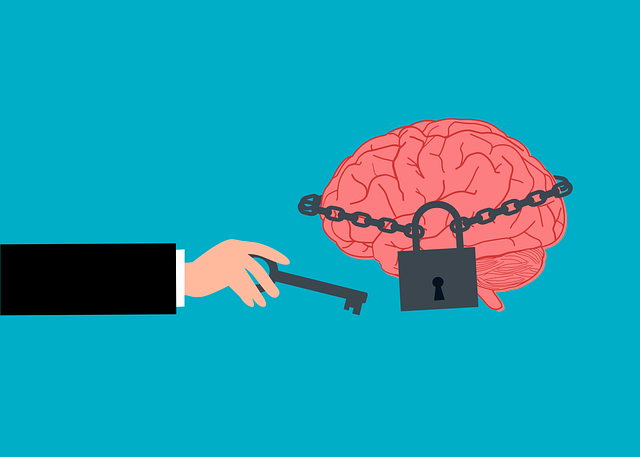Burnout among healthcare providers, driven by heavy workloads and high-stress environments, negatively impacts well-being, patient care, and organizational productivity. Effective prevention strategies include mindfulness practices, compassion cultivation techniques (Therapy for Stress Management), evidence-based mood management skills training, and Healthcare Provider Cultural Competency Training. Self-care, particularly therapy for stress management, is crucial. Mindfulness and relaxation techniques prevent burnout, enhance job satisfaction, and improve compassionate care delivery. Supportive work environments with open communication, flexible schedules, regular mental health check-ins, and accessible stress management resources reduce burnout rates. Efficient time management through task prioritization, goal setting, and technology leverages stress awareness and mental health, fostering a balanced professional life.
Healthcare provider burnout is a growing concern, impacting not just individuals but the entire healthcare system. This article explores effective strategies to prevent burnout among healthcare workers, focusing on understanding its root causes and implementing practical solutions. We delve into key areas such as self-care, mindfulness, supportive work environments, and time management. By adopting these strategies, healthcare providers can enhance their well-being and employ therapy for stress management, fostering a healthier and more sustainable professional landscape.
- Understanding Burnout Among Healthcare Providers
- The Role of Self-Care in Preventing Burnout
- Incorporating Mindfulness and Relaxation Techniques
- Building Supportive Work Environments
- Implementing Effective Time Management Strategies
Understanding Burnout Among Healthcare Providers

Burnout among healthcare providers is a growing concern, impacting not only individual well-being but also patient care quality and organizational productivity. It manifests as a state of emotional exhaustion, depersonalization, and reduced personal accomplishment, often driven by heavy workload, long shifts, and high-stress environments. This phenomenon is particularly prevalent in professions like medicine and nursing, where caregivers frequently face life-or-death situations, manage complex patient needs, and navigate demanding administrative tasks.
Recognizing burnout early is crucial for implementing effective prevention strategies. Therapies for stress management, such as mindfulness practices and compassion cultivation techniques, have shown promise in mitigating burnout risk. Additionally, enhancing mood management skills through evidence-based interventions can help healthcare providers maintain emotional resilience. Furthermore, Healthcare Provider Cultural Competency Training plays a vital role in fostering an inclusive environment, reducing caregiver stress related to interpersonal dynamics and cultural differences.
The Role of Self-Care in Preventing Burnout

In the ongoing battle against healthcare provider burnout, self-care stands as a robust and often overlooked weapon. The demands of caring for others’ well-being can lead to emotional exhaustion, making it imperative for providers to prioritize their own mental health. Incorporating therapy for stress management into their routines is not a sign of weakness but rather a strategic move to prevent burnout and maintain optimal performance. Techniques such as mindfulness, cognitive behavioral therapy, and relaxation exercises have been proven effective in managing stress levels, fostering resilience, and enhancing emotional well-being.
Beyond individual practices, cultural sensitivity in mental healthcare plays a significant role in burnout prevention. Understanding the unique challenges faced by diverse patient populations encourages providers to tailor their self-care strategies accordingly. For instance, integrating cultural aspects into one’s Self-Care Routine Development for Better Mental Health can significantly reduce stress and foster a deeper connection with both patients and colleagues. By recognizing and addressing depression prevention as an integral part of self-care, healthcare providers can create a more sustainable and fulfilling professional journey.
Incorporating Mindfulness and Relaxation Techniques

Incorporating mindfulness and relaxation techniques into healthcare provider routines can be a powerful tool for stress management. These practices, such as meditation or deep breathing exercises, promote mental clarity and emotional healing processes, allowing professionals to navigate their demanding schedules with enhanced resilience. By dedicating just a few minutes each day to these activities, healthcare workers can significantly reduce burnout rates and improve overall job satisfaction.
Mindfulness therapy for stress management has been shown to prevent depression, fostering a sense of calm amidst the chaos of healthcare settings. These techniques enable professionals to disconnect from the constant stream of stressors, improving their ability to provide compassionate care. Through regular practice, healthcare providers can build resilience, ensuring they remain emotionally equipped to handle challenging situations and maintain a healthy work-life balance.
Building Supportive Work Environments

Creating supportive work environments is a critical aspect of burnout prevention strategies for healthcare providers. Hospitals and clinics can foster such environments by promoting open communication, encouraging collaboration among staff members, and recognizing and rewarding efforts to enhance patient care. Regular team-building activities, clear job expectations, and accessible resources for stress management, like therapy for stress management and mindfulness meditation, can significantly contribute to reducing burnout rates.
Implementing policies that prioritize employee well-being is key. This includes flexible work schedules, adequate break times, and regular check-ins with mental health professionals. Additionally, promoting positive mood management techniques through workshops or training sessions can empower healthcare providers to better handle workplace pressures. These strategies collectively create a culture where healthcare workers feel valued, supported, and equipped to manage their stress levels effectively.
Implementing Effective Time Management Strategies

Healthcare providers often juggle demanding schedules and complex patient care, making effective time management a crucial strategy to prevent burnout. By implementing structured approaches, medical professionals can achieve a better work-life balance. One effective method is to prioritize tasks based on urgency and importance, ensuring that critical patient needs are addressed first. This involves setting clear goals for each day or shift, creating structured to-do lists, and allocating specific time slots for different responsibilities.
Additionally, utilizing technology for scheduling and task management can streamline processes. Many tools offer reminders, automate certain administrative tasks, and facilitate efficient communication with colleagues and patients. Incorporating these strategies not only reduces the mental burden but also allows healthcare providers to focus on delivering quality care while maintaining their well-being, which is essential for managing stress and improving overall mental health awareness.
Healthcare provider burnout is a growing concern, but with the right strategies, it can be effectively prevented. By understanding the root causes of burnout, prioritizing self-care, adopting mindfulness practices, fostering supportive work environments, and implementing efficient time management techniques, healthcare professionals can create a more balanced and fulfilling practice. Incorporating these strategies not only enhances well-being but also improves patient care and overall job satisfaction. Remember, investing in stress management through therapy or other means is crucial for long-term success and resilience in the healthcare field.














